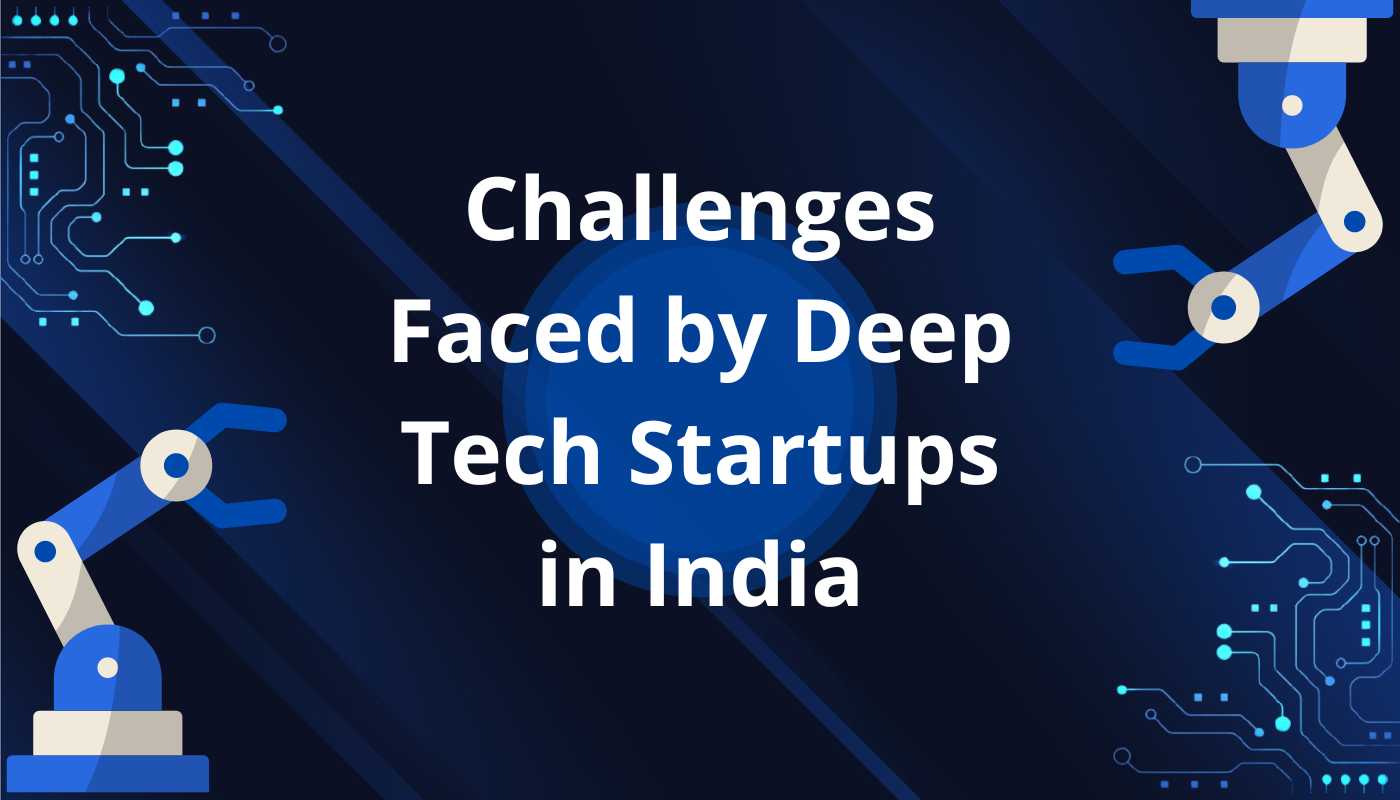


To address the topic of challenges faced by start-ups in the deep tech and emerging businesses area in India, we'll explore various aspects that impact their growth and success. Deep tech startups, known for their intensive research and development in cutting-edge technologies such as artificial intelligence, biotechnology, robotics, quantum computing, and more, face unique challenges in the dynamic Indian market. This blog post will delve into these challenges, providing insights into the obstacles and potential solutions for startups navigating this complex landscape.
Challenges Faced by Deep Tech Startups in India
1. Access to Capital
One of the primary challenges for deep tech startups in India is securing adequate funding. Unlike traditional tech startups, deep tech companies require significant initial investment for research and development before they can generate revenue. The Indian venture capital ecosystem, although growing, is still maturing, and investors often hesitate to back businesses with long gestation periods due to perceived higher risks.
2. Talent Acquisition and Retention
Deep tech startups require highly skilled professionals with specialized knowledge in fields such as machine learning, genetic engineering, or materials science. However, there is a talent gap in the Indian market, with a shortage of individuals possessing the advanced technical skills necessary for deep tech innovation. Additionally, startups often struggle to compete with the salaries and perks offered by established tech giants, making talent retention a significant issue.
3. Regulatory Challenges
The regulatory environment in India can be a hurdle for deep tech startups, particularly those in sectors like biotechnology and health tech, which are subject to stringent regulations. Navigating the complex web of compliance requirements can be time-consuming and costly, slowing down innovation and market entry.
4. Market Adoption
Despite India's rapid digital transformation, market readiness for deep tech solutions can be low. Convincing businesses and consumers to adopt new, unproven technologies is a challenge, especially when it involves changing established behaviors or processes. Startups must invest considerable effort in education and market development activities.
5. Infrastructure and Ecosystem Support
While India has made significant strides in developing its startup ecosystem, deep tech startups often require specialized infrastructure, such as advanced laboratories and research facilities, which are not widely available. Moreover, the ecosystem for mentorship, collaboration, and industry partnerships is still evolving, making it difficult for startups to access the support they need.
6. Intellectual Property Protection
Protecting intellectual property (IP) is crucial for deep tech startups, as their value largely resides in their technological innovations. However, IP protection in India can be challenging due to complex procedures and lengthy processes, putting startups at risk of infringement and limiting their ability to commercialize their technologies.
Navigating the Challenges: Strategies for Success
To overcome these challenges, deep tech startups in India can adopt several strategies:
-Seeking Alternative Funding Sources: Startups can explore government grants, international venture funds, and corporate partnerships that are open to investing in high-risk, high-reward projects.
- Building Strong Academic and Industry Partnerships: Collaborations with universities and research institutions can help startups access talent, research facilities, and opportunities for technology commercialization.
- Engaging with Regulatory Bodies: Proactively working with regulatory authorities and industry bodies can help startups navigate compliance issues more effectively and advocate for more startup-friendly regulations.
- Focusing on Customer Education and Engagement: Developing comprehensive education and marketing strategies can help startups build market awareness and drive adoption of their technologies.
- Leveraging Technology Incubators and Accelerators: Participating in incubator and accelerator programs specialized in deep tech can provide startups with mentorship, resources, and networking opportunities.
- Investing in IP Protection: Prioritizing and investing in robust IP protection strategies from the early stages can safeguard startups' innovations and enhance their valuation.
Conclusion
Deep tech startups in India are at the forefront of innovation, tackling some of the most pressing challenges of our time. However, navigating the complex landscape of the Indian market requires resilience, strategic planning, and the ability to adapt to an evolving ecosystem. By addressing the unique challenges they face and leveraging the available resources and strategies, deep tech startups can pave the way for groundbreaking advancements and secure their place in India's technological future.
As the Indian startup ecosystem continues to mature, it is imperative for stakeholders, including government bodies, investors, and industry leaders, to foster an environment that supports the growth and success of deep tech ventures. Through collaborative efforts, India can not only overcome these hurdles but also emerge as a global leader in deep tech innovation.